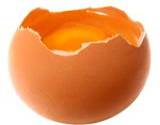|
Grandma's Taurine
|
 |  |  |
High concentrations of taurine are found in the heart muscle, white blood cells, skeletal muscle, and in you central nervous system. This amino acid has a protective effect on the brain, particularly when the brain is dehydrated.
Taurine is a building block of all the other amino acids as well as a key component of bile, which is needed for digestion of fats, the absorption of fat-soluble vitamins, and the control of serum cholesterol levels.
Taurine can be useful for people with atherosclerosis, edema, heart disorders, hypertension, or hypoglycemia. It is ital for the proper utilization of sodium, potassium, calcium, and magnesium, and it has been shown to play a particular role in sparing the loss of potassium from the heart muscle. This helps to prevent the development of potentially dangerous cardiac arrhythmias.
Taurine is used to treat anxiety, epilepsy, hyperactivity, poor brain function, and seizures.
This amino acid is found in concentrations up to four times greater in the brains of children than in those of adults. It may be that a deficiency of taurine in the developing brain is involved in epileptic attacks.
Zinc deficiency also is commonly found in people with epilepsy, and this may play a part in the deficiency of taurine. Taurine is also associated with zinc in maintaining eye function; a deficiency of both may impair vision.
Taurine supplementation may benefit children with Down syndrome and muscular dystrophy.
This amino acid is also used in some clinics for breast cancer treatment.
Excessive losses of taurine through the urine can be caused by many metabolic disorders Cardiac arrhythmias, disorders of platelet formation, intestinal problems, an overgrowth of candida, physical or emotional stress, a zinc deficiency, and excessive consumption of alcohol consumption also cause the body to lose its ability to utilize taurine properly.
Diabetes increases the body's requirements for taurine; conversely, supplementation with taurine and cysteine may decrease the need for insulin.
Natural taurine is found in eggs, fish, meat, and milk, but not in vegetable proteins.
It can be synthesized from cysteine in the liver and from methionine elsewhere in the body, as long as sufficient quantities of Vitamin B6 are present.
For vegetarians, synthesis by the body is crucial. For individuals with genetic metabolic disorders that prevent the synthesis of this amino acid, taurine supplementation is required.
DISCLAIMER:
The statement's made here have not been approved by the Food and Drug Administration. These statements are not intended to diagnose, treat or cure or prevent any disease. This notice is required by the Federal Food, Drug and Cosmetic Act.
Return from Taurine to Amino Acids Guide
Return to Grandma's Herbal Remedies Guide





